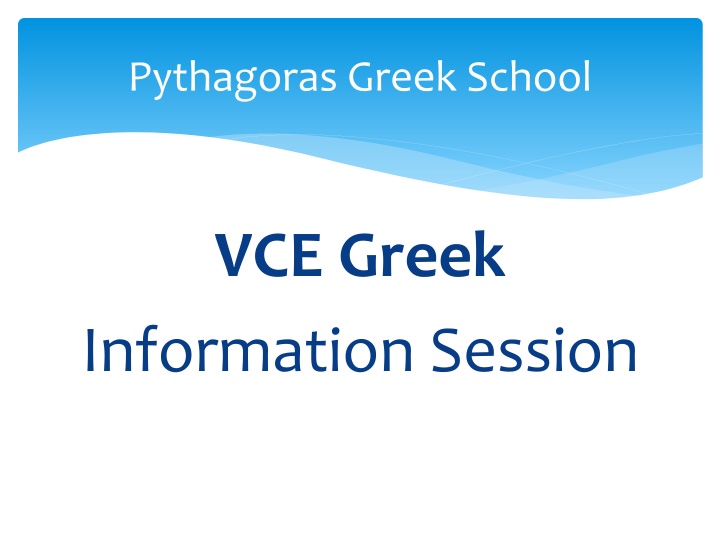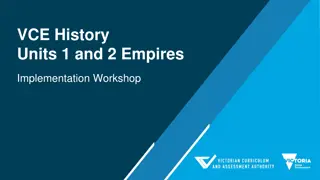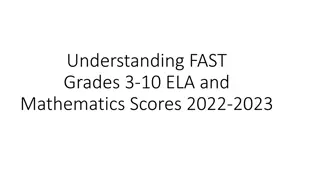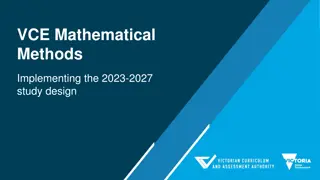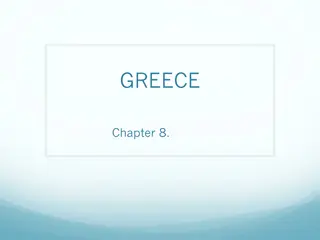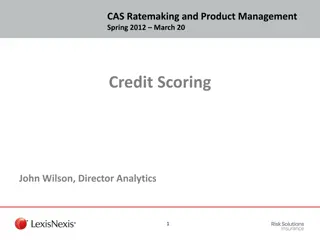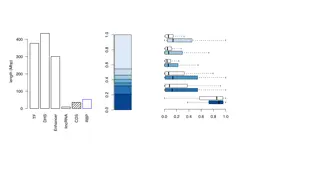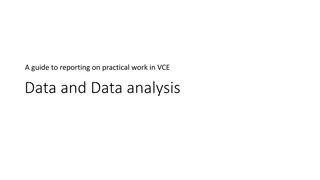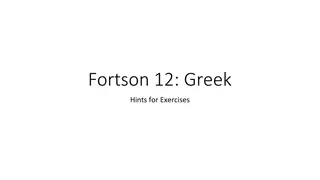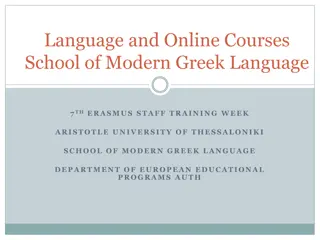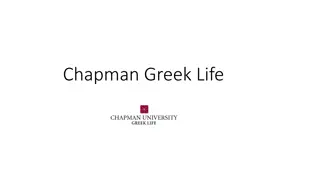VCE Greek Studies: Curriculum, Assessment, and Study Scores
VCE Greek Studies cover a range of themes over two years, focusing on areas such as Philosophy, Environment, Migration, and Greek Resistance. Students are assessed through tasks like writing, speaking, and reading comprehension. The study score is a reflection of a student's performance in comparison to others who took the same study. It ranges from 0 to 50, with scores above 38 indicating excellent performance. Large enrollment studies show the distribution of study scores across different percentile ranges. Assessment involves completing set requirements and School-assessed Coursework (SACs) for each unit to achieve a satisfactory result. Year 11 uses an S/N system, while Year 12 SAC results contribute to the final score calculation.
Download Presentation

Please find below an Image/Link to download the presentation.
The content on the website is provided AS IS for your information and personal use only. It may not be sold, licensed, or shared on other websites without obtaining consent from the author.If you encounter any issues during the download, it is possible that the publisher has removed the file from their server.
You are allowed to download the files provided on this website for personal or commercial use, subject to the condition that they are used lawfully. All files are the property of their respective owners.
The content on the website is provided AS IS for your information and personal use only. It may not be sold, licensed, or shared on other websites without obtaining consent from the author.
E N D
Presentation Transcript
Pythagoras Greek School VCE Greek Information Session
VCE The basics four units of study (Units 1 4) each unit focuses on a theme (i.e. Friendship, Environment, 25thMarch 1821 etc) at the end of each theme students sit an assessment based on one of the following tasks: - writing - speaking - reading comprehension - listening comprehension throughout each unit of work there is also a focus on teaching students: - writing genres - spelling & vocabulary - grammar.
Themes studied over two years: Happiness and Friendship in Greek Philosophy Environment Drugs Asia Minor Catastrophe / Rebetiko Music Migration 100 Most Important Greeks / Macedonian Issue Travel & Tourism Fall of Constantinople 25thMarch Mediterranean Diet Greek Resistance in World War 2 World of Work
Assessment Satisfactory Completion Students have to complete all set requirements and SACs (School-assessed Coursework) for each unit to receive a satisfactory result (a pass) In Year 11 no SAC results are recorded but rather an S or N In Year 12 SAC results contribute to a final study score
Study Score First, a raw score is calculated out of 500. SACs Oral Exam Written Exam /100 /100 /300 Total: /500
What is a study score? A study score shows how well you have performed in a study at Unit 3 and 4 level, compared to everybody else in Victoria who took that study. The maximum study score is 50. Each year, and for every study, the mean (average) study score is set at 30. A score of between 23 and 37 shows that you are in the middle range of students; a score of 38 or more indicates that you are in the top 15%.
Study Scores For studies with large enrolments (1,000 or more): 2% of students will get a score on or above 45 9% of students will get a score on or above 40 26% of students will get a score on or above 35 53% of students will get a score on or above 30 78% of students will get a score on or above 25 93% of students will get a score on or above 20.
How are study scores scaled? The study scores are adjusted so that the overall level of scores in that study matches the scores obtained by the same group of students in all of their studies. For example, in Economics in 2006 the average VCE Study Score was 30, but the students averaged 32 for all their studies. This shows that the students who did Economics in 2006 were of above average strength in their other studies. Therefore the scaling process adjusted the Study Scores upwards so that the average ATAR Subject Score for Economics was set at 32.
Scaling for Greek 2006 - no scaling, a 30 score stayed 30 2008 - scaling of +3, 2012 - scaling of +5, 2016 - scaling of +6, 2017 - scaling of +4, 2018 - scaling of +5, 2019 - scaling of +5, 2020 - scaling of +4, 2021 scaling of +3, 2022 scaling of +4, a 30 score increased to 33 a 30 score increased to 35 30 - 36 30 - 34 30 - 35 30 - 35 30 - 34 30 - 33 30 - 34 https://vtac.edu.au/files/pdf/reports/scaling-report-22-23.pdf
What is an ATAR score? The ATAR is a ranking of Year 12 results that measures your overall academic achievement compared with all other final year students in Australia (excluding Queensland). The ATAR is not a score out of 100 it is a rank. The ATAR allows tertiary institutions to compare the overall achievements of all students who have completed Year 12.
How is the ATAR calculated? The ATAR is calculated from an aggregate, produced by adding together: your highest scaled study score in one of the English studies (English, English Language, English as an Additional Language (EAL), Literature), highest scaled study scores for three additional permissible studies, and 10% of the scaled study scores for the fifth and sixth permissible studies.
How is the ATAR calculated? (cont ) Students are then ranked in order of their aggregate and a percentage rank is assigned to distribute students as evenly as possible over a 100-point scale. Finally, the percentage rank is converted to an ATAR score. The ATAR is an estimate of the percentage of the population that you outperformed. So if you receive an ATAR of 60, it means you performed better than 60% of students that year. The ATAR is a number from 0 and 99.95 in intervals of 0.05. The highest rank is 99.95, the next highest 99.90, and so on. The lowest automatically reported rank is 30.00, with ranks below 30.00 being reported as less than 30 .
To calculate your ATAR you can visit: http://vce.atarcalc.com or http://bettereducation.com.au/Resources/vce/vce_atar_ calculator.aspx
To find more about VCE Greek and Past Papers go to: https://www.vcaa.vic.edu.au/assessment/vce- assessment/past-examinations/Pages/Greek.aspx https://www.vcaa.vic.edu.au/curriculum/vce/vce- study-designs/greek/Pages/Index.aspx
Important Forms Assessing School Enrolment Notification 2023 Declaration for Enrolment in VCE Modern Languages Units 3 & 4 2023 These can be located on VCE Link tab at our school website www.pythagorasgreekschool.org They need to be completed and handed in to the VCE Coordinator of the student s day school (home school).
